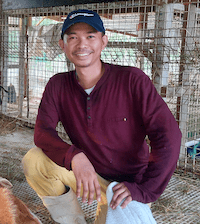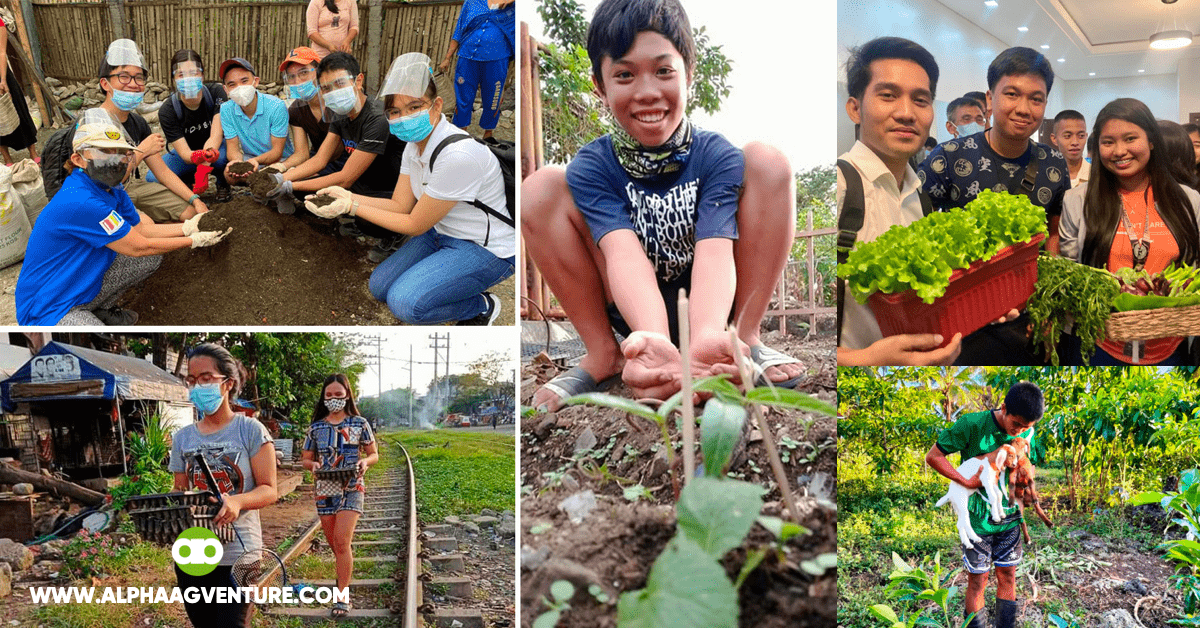Manila, Philippines – A study by the Philippine Rice Research Institute (PhilRice) indicates the necessity of reevaluating engagement strategies aimed at the youth, particularly those not attending school, to foster their involvement in the agriculture sector.
According to PhilRice, current approaches for engaging young individuals fail to address the core reasons behind their reluctance to pursue agriculture, potentially leading to adverse outcomes.
Nonetheless, Teresa Joi de Leon, a social scientist at PhilRice and the main author of the paper, highlights three key advocacies that resonate with young people: food security, health and wellness, and community building.
De Leon stresses that adequately addressing the concerns of young individuals can significantly enhance the likelihood of their continued participation in the sector.
Some of these concerns include employment and income prospects within agriculture
After analyzing 21 articles published in ProQuest and Google Scholar between 2011 and 2021, Teresa Joi de Leon, Louie Gerard Orcullo, and Dr. Jaime Manalo IV conclude that the government has primarily spearheaded youth and agriculture initiatives.
The initiatives include diverse programs ranging from scholarships to community development.
Notably, Mindanao witnessed prominent engagement efforts during the specified period.
The team further observes that studies on Philippine youth and agriculture employ a combination of qualitative and quantitative methodologies.
However, De Leon highlights a lack of representation of out-of-school youth in the existing literature.
In the same light, the Department of Agriculture (DA) encourages young people to actively participate in agri-business by engaging in the Young Farmers Challenge (YFC).
Richmond Pablo, the Chief of the DA’s Agribusiness and Marketing Assistance Division (AMAD) in Calabarzon, advises the youth to approach the opportunity without fear or hesitation.
He assured them of continuous support throughout the process.
He underscores the importance of facilitating their access to financing institutions since he is aware that limited capital may be an obstacle for young individuals,
The YFC program provides Filipino youth with the chance to develop a Business Model Canvas (BMC) and establish an agricultural business through financial grant assistance.
In Calabarzon, each province will select six winners who will receive PHP18,000 per business model canvas, while the City of Lucena will have an additional three slots.
At the provincial level, the best business model canvas and implementor will be awarded an extra PHP200,000.
Nationally, two winners will receive PHP300,000 each.
Furthermore, the inter-collegiate competition among state universities and colleges in Calabarzon grants the victor PHP150,000.
Pablo emphasizes that participation incurs no costs, urging contestants to derive enjoyment from the competition and successfully execute their business model canvases.
He reports that there were 88 YFC awardees in 2021 and 99 in 2022.
The judging panel for the competition comprises representatives from the Department of Trade and Industry (DTI), the Department of Agriculture (DA), and an entrepreneur from the private sector.
Recently, AMAD organized a Capacity Building and Action Planning Workshop at the Lipa Agriculture Research and Experiment Station, specifically for 22 YFC Awardees.
The workshop aimed to ensure the seamless implementation of the awardees’ projects and provide the youth with guidance for managing and expanding their businesses.
Moreover, farmer cooperatives and associations have the opportunity to apply for up to PHP3.5 million in business development assistance (BDA).
The allocated funds for BDA must be utilized for shared service facilities that benefit young farmers.
AMAD also provides interventions in the form of product development, capacity enhancement, and enterprise development.
Alpha Agventure also takes social responsibility for spreading science-based, experience-driven, and technology-oriented practices on livestock and poultry farming on a small to medium-scale level.
More than 300 practical and educational videos have been published by Alpha Agventure on its website.

Mr. Jaycee de Guzman is a self-taught agriculturist and the founder and patriarch of Alpha Agventure Farms, recognized as the leading backyard farm in the Philippines. With a rich background in livestock farming dating back to the early 1990s, Mr. de Guzman combines his expertise in agriculture with over 20 years of experience in computer science, digital marketing, and finance. His diverse skill set and leadership have been instrumental in the success of Alpha Agventure Farms.



